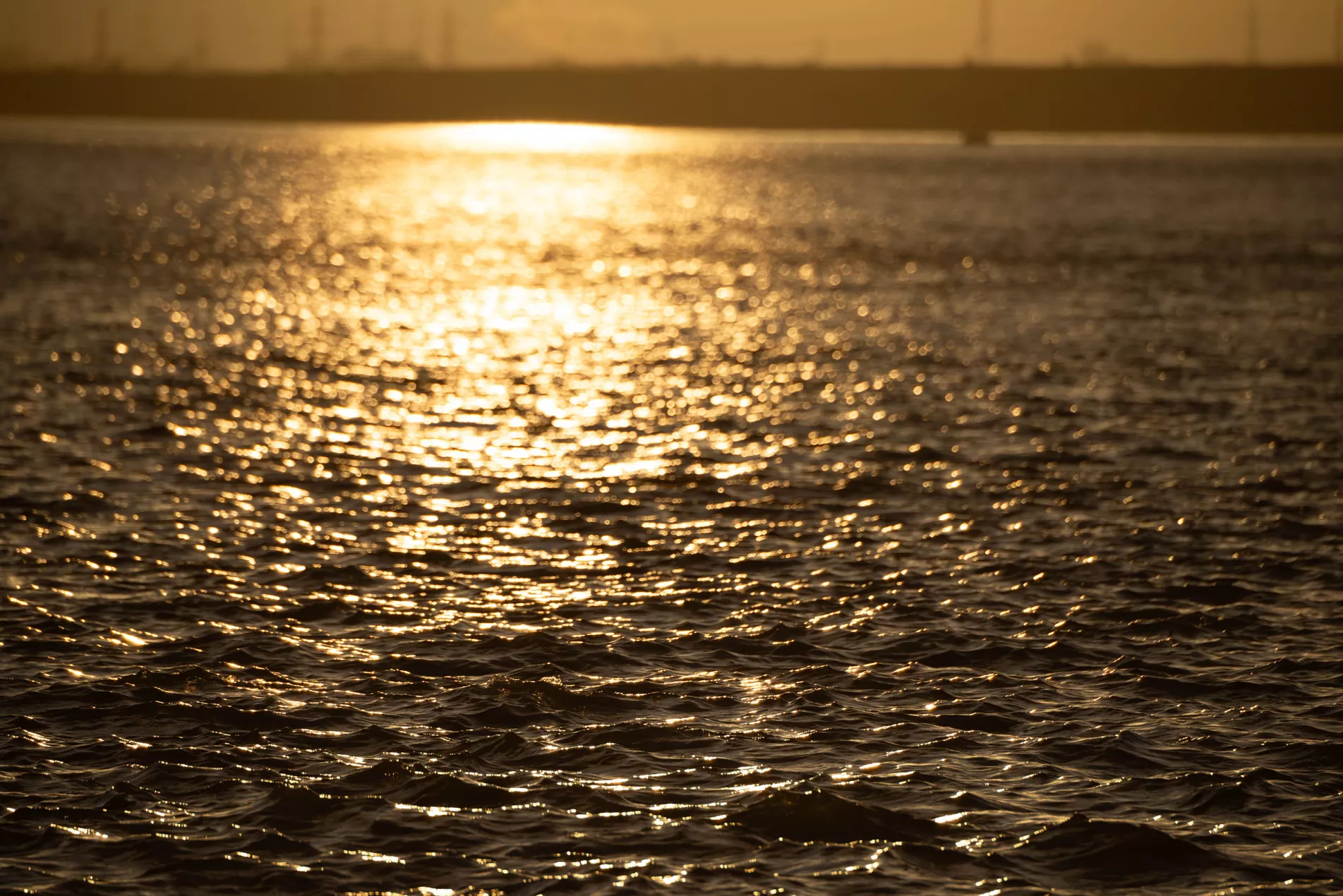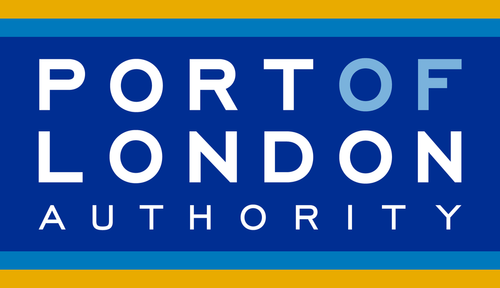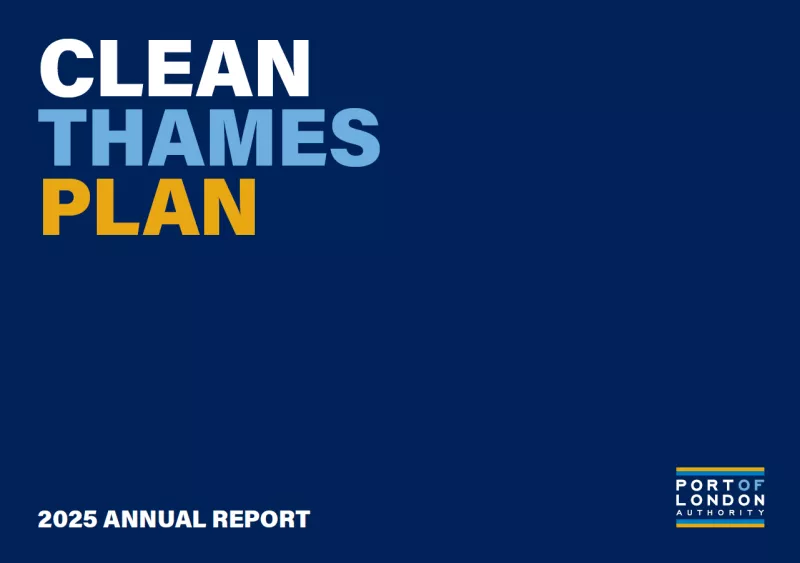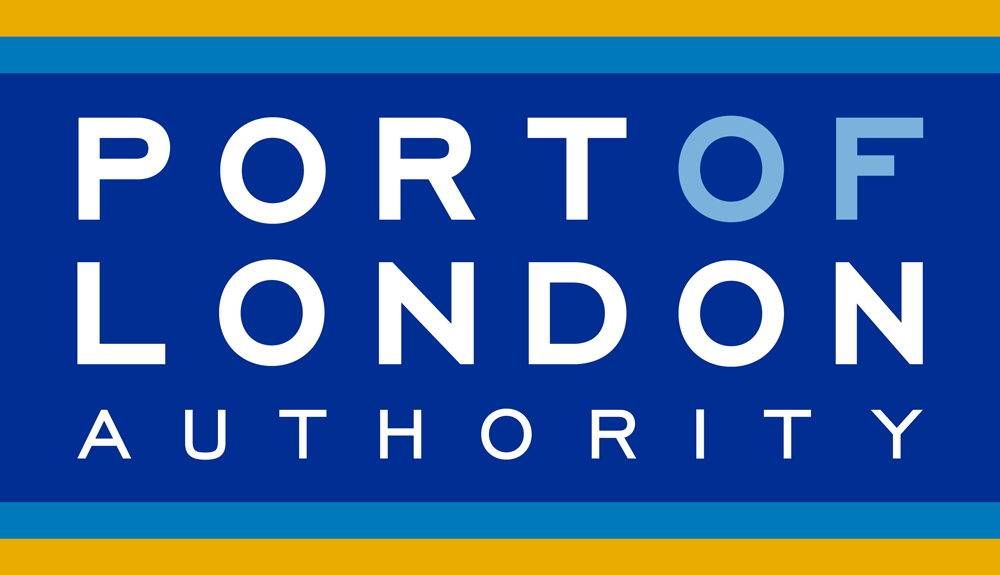Live Tides
NOTICES TO MARINERS
Charts & Surveys
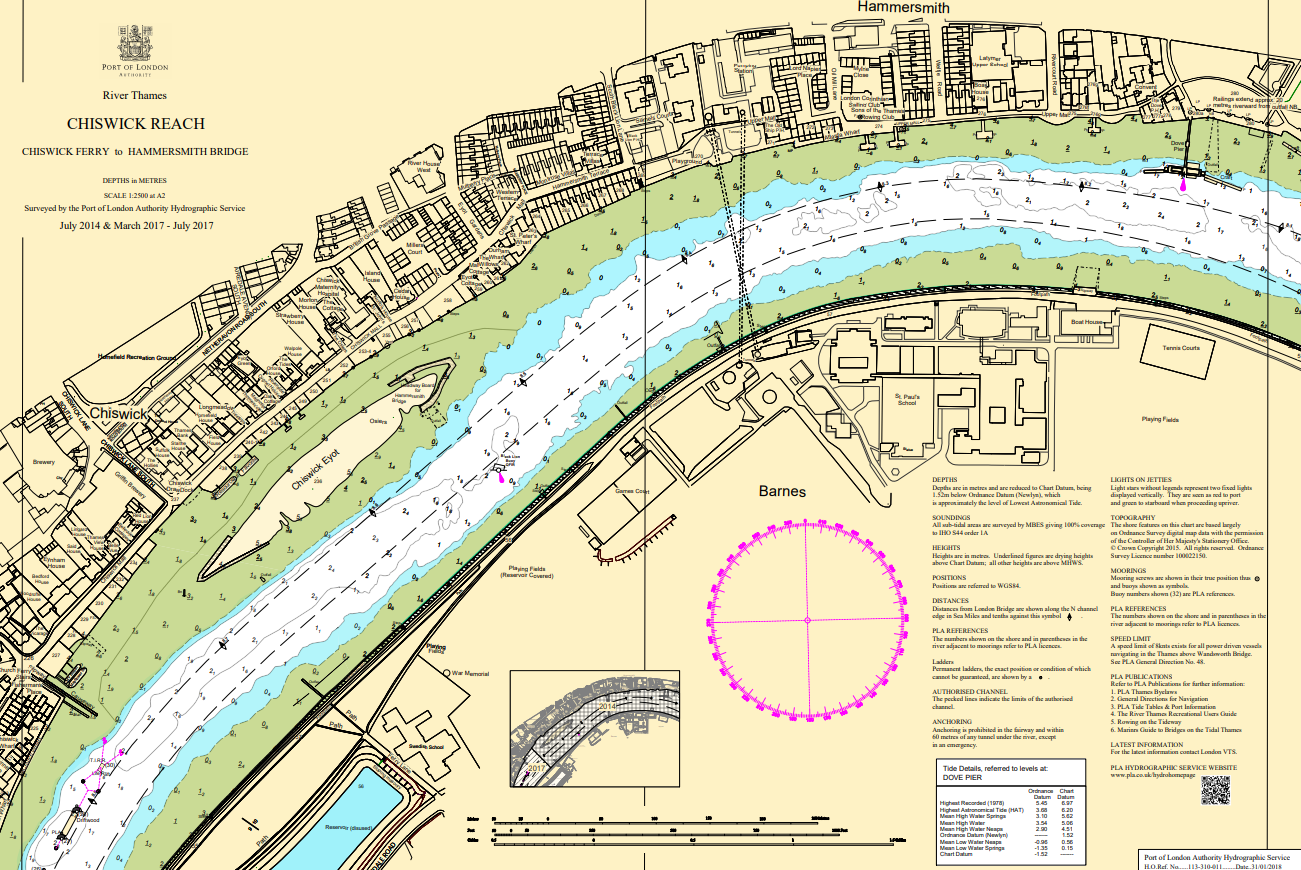
Incident reporting
Life-threatening emergencies on the river:
Call 999 and ask for the Coastguard
For near miss, safety observations and incident reporting click below
The PLA’s inaugural Safe Boarding Week is a success
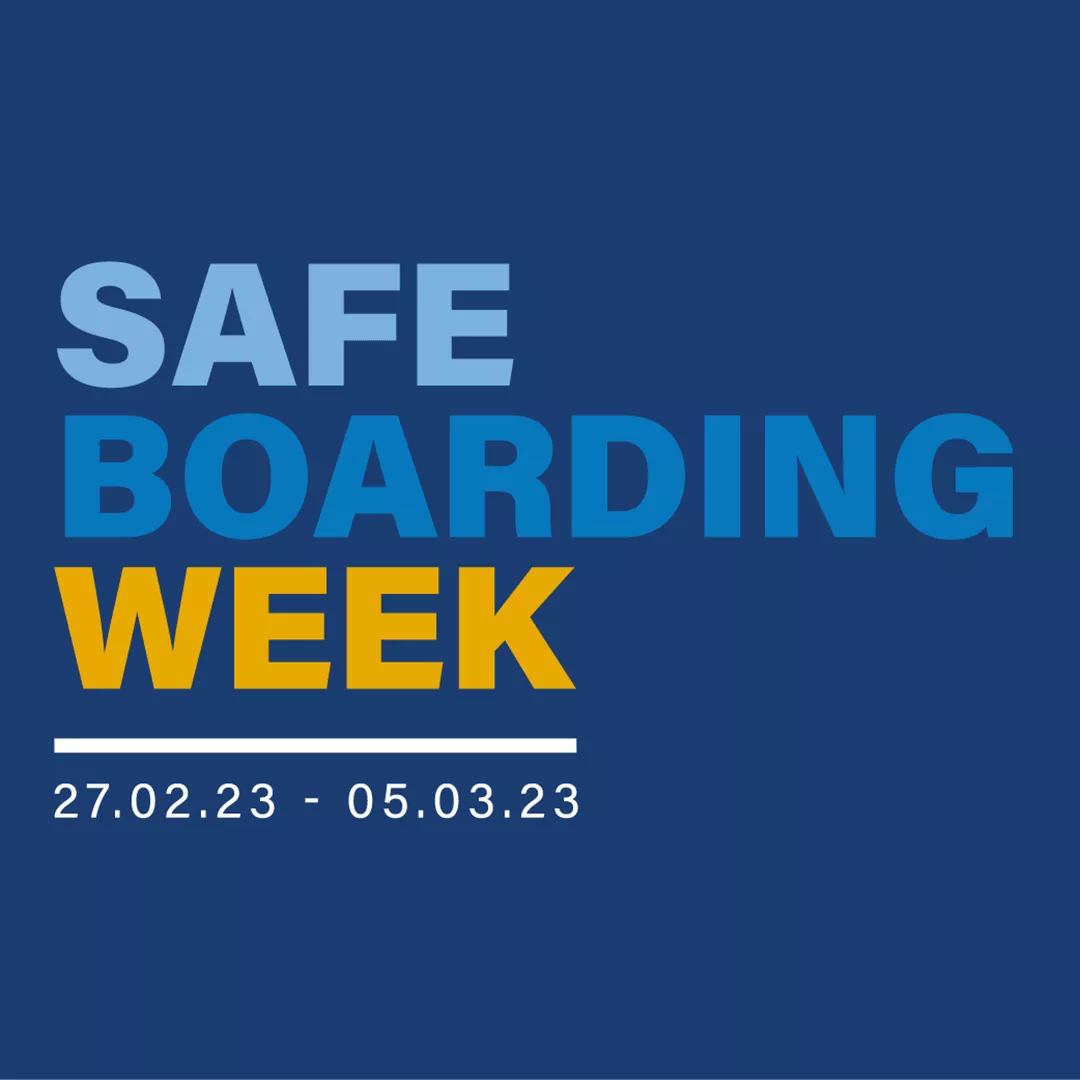
The Port of London Authority’s (PLA) first annual, week-long event ‘Safe Boarding Week’ has been a great success.
The total number of inspections was 265, far exceeding the target of 200, and included gangways, ladders from berths, piers and linkspans, along the 95 miles of tidal Thames in the PLA’s jurisdiction.
Commenting on the success, Bob Baker, the PLA’s chief harbour master, said,
“We’re delighted that our safety initiative, the first of its kind in Europe, has been such a success, achieving its objectives in raising the profile of our commitment to safety and gathering useful information that can help address common issues and deficiencies in safe access. Thanks to all my colleagues, as well as terminals and vessels, for their participation and cooperation with the initiative.”
Sixty-four PLA personnel participated, including senior management, pilots and crew members. The results highlighted the most common shoreside deficiencies were the lack of safety nets that should be fitted under all parts of the gangways, and a lack of gangway attendance. Furthermore, 51 of the 62 pilot ladders that were inspected were found to be compliant. The information that was gathered through the inspections will help develop targeted campaigns in the future.
Related content
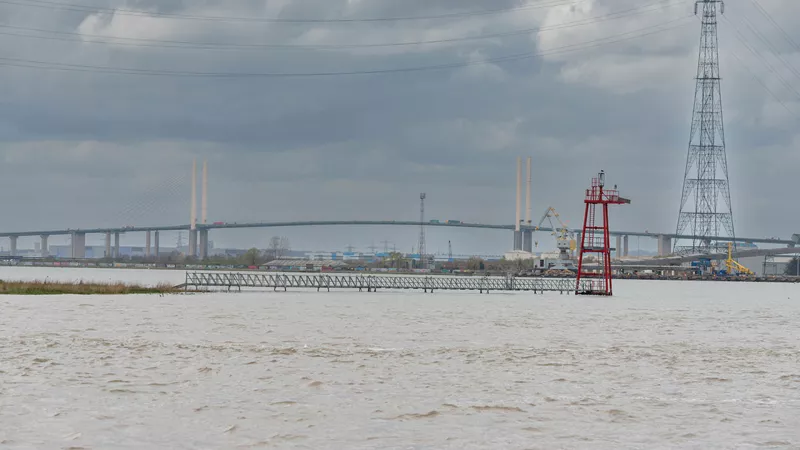
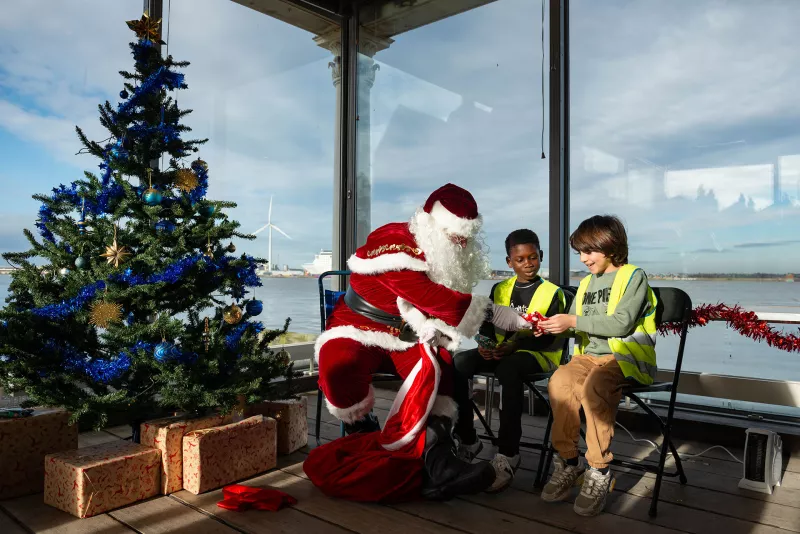
Location: London/Gravesend Remuneration: £28,971 per annum for a commitment of up to 24 days per...

Pilotage Directions - Amendments
Consultation C03-23
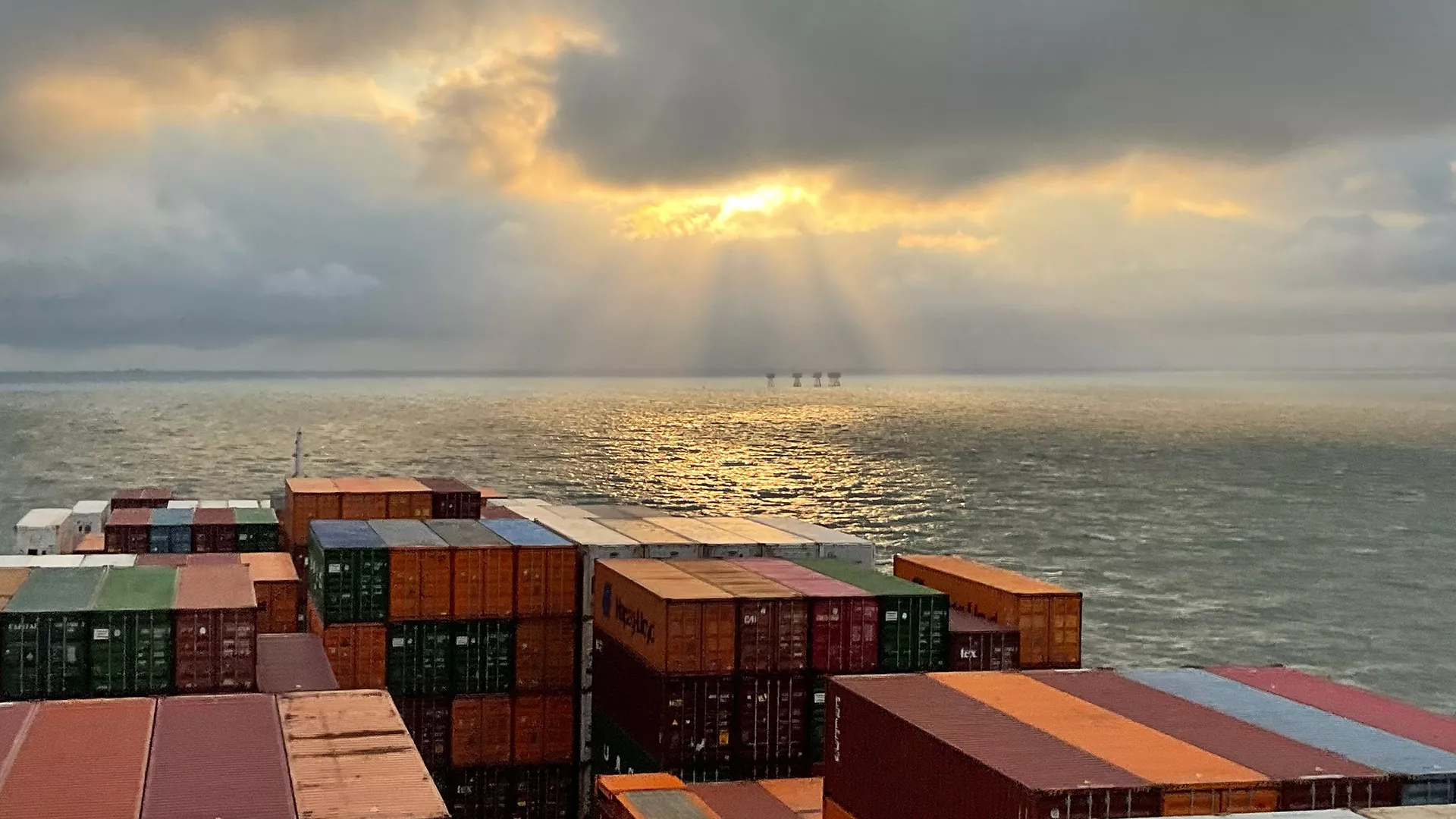
Consultation Statement C03-23
This consultation ran from 14/03/2023 to 14/04/2023. The below statement has been provided to summarise the Port of London Authority’s (PLA) initial response.
The responses can be summarised as follows:
| Relevant Section | Comment | Response |
| Pilotage Direction 5 | The exemption from pilotage for dredgers operating to the East of Sea Reach 1 would be detrimental to safe operations. | The application of this exemption is not unilateral. It is subject to the requirements of the harbour master in consultation with our pilotage body and for a period the PLA will specify. Such an exemption would be subject to risk assessment and the approval of the PLA. |
| Notes to Directions | The empowerment of Crouch Harbour Authority (CHA) to authorise their own pilots in the PLA’s jurisdiction requires clarification regarding the specific area and PLA oversight. | A memorandum of understanding (MOU) is being established with Crouch Harbour Authority. This will allow them to authorise their own pilots in a very limited part of the PLA pilotage area. A revised chartlet of this area will be included in the final draft which provides clarity on the areas which may be covered. PLA harbour masters will be on the examining panel in line with the arrangements with other neighbouring ports. These parameters were approved the PLA pilot training panel on 25th May 2023. |
| Notes to Directions | The MoU between the PLA and CHA states an authorisation to 6.5m (rather than the 6.0m printed in the consultation notice). | The authorisation limit agreed between the PLA and CHA is 6.5 metres draft as opposed to the 6.0 metres included in error in the original consultation notice. |
| Pilotage Exemption Certificate Regulation 1.4 | The PLA pilot training panel should approve changes to PEC requirements. | The PEC regulations have previously been agreed the PLA pilot training panel. The minor changes made to tripping requirements have only increased the regulatory requirements for PEC applicants. |
| Pilotage Exemption Certificate Regulation 1.4 | The requirement for applicants of vessels >145m to prepare a passage plan for their examination should be extended to all PEC applicants. | This was agreed by the PLA pilot training panel on 25th May 2023 and will be included in the final draft. |
| Pilotage Exemption Certificate Regulation 1.6 | There is a significant difference between the renewal criteria for PEC holders and PLA pilots. | Since a PLA pilot is authorised for all vessels within the size limitations and district limits and a PEC holder is restricted to specified vessel(s) and specified berth(s) the requirements are significantly different. |
| Pilotage Exemption Certificates Regulation 1.2 | Support exists for the provision of PEC Bs to the East of Sea Reach 1 subject to appropriate examination and assessment criteria. | PEC Bs issued for this area will be subject to the same requirements as those issues to the West of Sea Reach 1. Applicants wishing to extend their area would be subject to an oral examination and practical assessment as per Pilotage Exemption Certificate Regulation 1.4. |
| Notes to the Directions 2.6 | Provision should be made in the Pilotage Directions for the repatriation of overcarried pilots. | The charges and arrangements are specified on page 16 of the PLA Charges 2023. This requirement has now been reiterated in the Notes to the Directions. |
| Pilotage Direction 3 | The definition of ‘length overall’ should not apply to objects overhanging the towing medium. | Definitions are aligned between all PLA regulations and this definition will not be amended. |
| Pilotage Direction 4 | The LOA requirement for vessels carrying dangerous goods to be subject to compulsory pilotage is not proportionate to the increase in risk (and should be increased in line with other vessel types). | The reduction in LOA requirement for vessels carrying dangerous goods and passenger vessels was thoroughly risk assessed during the 2016 pilotage directions review and has been re-assessed as part of this review. This reduction takes account of the increase in consequence severity for these vessel types. A review of the risk assessment did not identify any grounds to change this requirement. |
| Pilotage Direction 4 | The reduction in LOA requirement to the West of Margaretness is excessive and unjustified. | The reduction in LOA requirement to the West of Margaretness was thoroughly risk assessed during the 2016 pilotage directions review and has been reassessed as part of this review. This reduction takes account of the increased risks involved in navigation through bridges, shallower water, narrower channels and increased traffic. A review of the risk assessment did not identify any grounds to change this requirement. |
| Pilotage Direction 4 | Pilots required to the west of Margaretness must be embarked at Gravesend resulting in additional charges to the operator. | The PLA operate a pilot station at Gravesend. From time-to-time arrangements have been made for pilots to be transferred to vessels at Margaretness but since no pilot station exists here, the PLA must retain discretion as to whether this service is or can be provided. |
| Pilotage Direction 6 | The assigning of a pilot should not be in the opinion of a harbour master and removes the Master from his duties. | The wording of this direction is such that the harbour master must have grounds to require a vessel to take a pilot, whether this be due to damage or deficiency, or in the interests of navigational safety. Such a decision would not be made unreasonably. |
| Appendix 6 | It is unclear which passenger vessels may be excepted from compulsory pilotage. | Pilotage Direction 5(3) permits the harbourmaster to except vessels >40m LOA or >4m operating draft subject to their requirements. Appendix 6 sets the upper parameter of this exception to passenger vessels up to 65m LOA. |
| Appendix 6 | Table 1 is not representative of what was agreed at the pilotage direction review of 2016. Several amendments are suggested. | Minor amendments have been made to these tables to better reflect the content of Navigational Risk Assessment Working Group 53 as approved. A review of the risk assessments produced by the 2016 review identified that these changes were satisfactory. |
Adam Layer, Harbour Master
Pilotage Directions: Amendments
Consultation C03-23
Introduction
The Port of London Authority (PLA), as a Competent Harbour Authority within the meaning of the Pilotage Act 1987 and in the exercise of its powers under Section 7 of that Act, intends to amend the Pilotage Directions for the port. This Public Consultation notice gives both notice and detail of the changes. We welcome comments to the changes from the owners of ships which customarily navigate within the compulsory pilotage area and any other persons who carry on harbour operations within the harbour of the authority.
The updated Pilotage Directions are contained in full, as an appendix to this notice, with a brief summary below. Changes, including additions and deletions, are show in purple. Current Pilotage Directions can be found on our website. In addition to the content changes, we will also improve the website experience for navigating the Pilotage Directions and align the presentation style with our General Directions.
Summary of Significant Changes
- Section 6 empowers the harbourmaster to require any vessel to take a pilot in the interests of the safety of navigation.
- The addition of the Crouch Harbour Authority pilotage authorisation area.
- The capacity to accept PEC B applications East of Sea Reach 1 on a case-by-case basis.
- Minor changes to the PEC requirements including amendments to the specific requirements around tripping.
Responses
Any comments you may have in response to this consultation exercise should be addressed, in writing, to the Marine Compliance Department at the address below, or by e-mail to: [email protected], to arrive by 14th April 2023. All comments must be submitted before the closing date.
New light freight trial
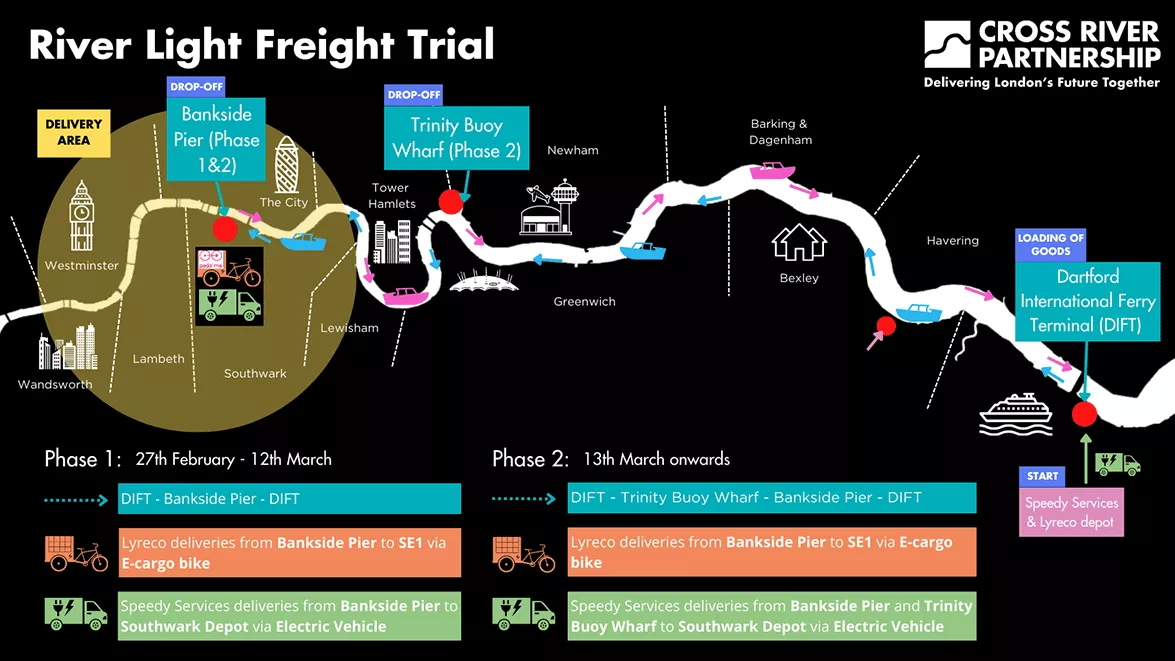
The former Dartford International Ferry Terminal, recently acquired by the PLA, is the starting point for a new, pollution-reducing trial, ferrying light freight into London by river.
The London Light Freight River Trial, a Cross River Partnership (CRP) initiative, involves a daily Thames Clippers Logistics service shuttling goods to Bankside Pier in Southwark for suppliers Lyreco and Speedy Services. It is part of the Clean Air Logistics for London programme, funded by Defra.
A second phase (from 10 March) has extended deliveries to Trinity Buoy Wharf in Tower Hamlets.
Ultra-low emission, “last-mile” deliveries to customers across the capital are operated by both Pedal Me, via e-cargo bike, and Speedy Services, using electric vans.
GRID Smarter Cities has also installed kerbside technology to aid the unloading process.
For the first time on the river, the vessels used in the trial are carrying goods on their return journey too.
A CRP trial last summer showed that using the river for light freight reduced air pollution and eased congestion. It recorded a 78% saving in NOx and an 88% saving in CO2 emissions, compared road-based deliveries.
James Trimmer, PLA planning & development director, said: “With our newly acquired wharf at Dartford paying a pivotal role, this latest trial underlines our Thames Vision 2050 commitment to ensuring that the river plays a transformational role in making the Port of London a world-leading, Net Zero trading hub.”
CRP programme manager, Fiona Coull, said: “It has been brilliant to work with so many partners, to get more freight into central London by river rather than by road.
“Incorporating return deliveries even further highlights how effective the river can be for just-in-time deliveries, as well as the opportunity it provides to help businesses reduce their carbon footprint and improve congestion and air quality.”
Related content


Location: London/Gravesend Remuneration: £28,971 per annum for a commitment of up to 24 days per...

Maritime Minister, Baroness Vere, endorses PLA’s Safe Boarding Week
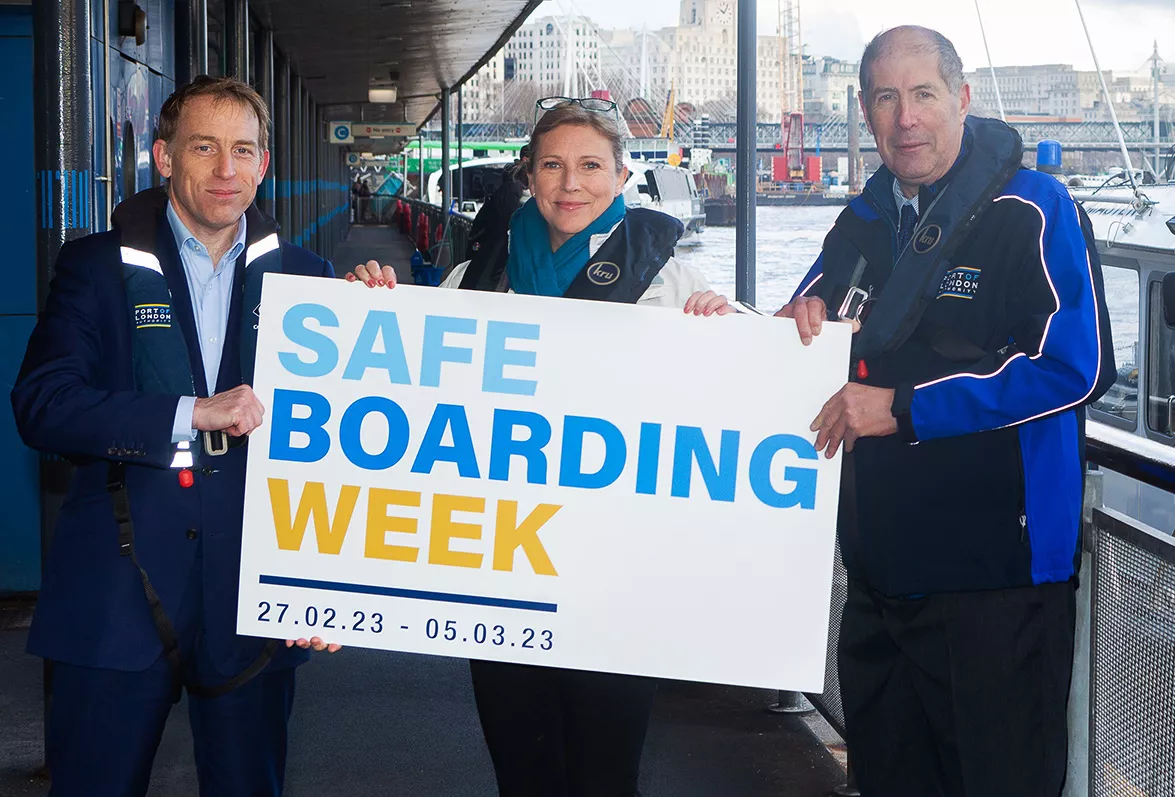
Baroness Vere of Norbiton, the new Maritime Minister, visited the Port of London Authority (PLA), the organisation overseeing operations in the UK’s largest port, yesterday (1 March 2023) during its inaugural annual safety initiative, ‘Safe Boarding Week’.
‘Safe Boarding Week’, a week-long safety event from the Monday 27 February to Sunday 5 March 2023, is the first of its kind in Europe. It aims to raise awareness of safe vessel access along the 95 miles of the tidal Thames in the PLA’s jurisdiction and highlights the importance the PLA places on safety on the 95 miles of the tidal Thames that it manages.
Maritime Minister Baroness Vere said:
“The UK has world-class standards when it comes to maritime safety.
“However, any injury or tragedy on our waters and riverways is one too many, and we will keep working to ensure they’re safer still.
“I’m therefore grateful to the Port of London Authority for raising awareness of this important issue and helping to ensure everyone has safe access on and off vessels.”
Throughout this week, the PLA will be inspecting the boarding facilities of cargo and passenger vessels, as well as terminal operators, jetties and piers. Responsibility for safe access on and off the vessels on the tidal Thames is shared between the master of the ship or vessel, in respect to Safe Access regulations, and the jetty or terminal operators, many of whom elect to abide to the Port Marine Safety Code.
As PLA’s chief harbour master, Bob Baker, said:
“At the PLA, safety is at the heart of everything we do. We continue to engage with berths and terminals where difficulties in providing gangway access are known to exist, and deficient boarding arrangements are frequently reported.
“By launching ‘Safe Boarding Week’, we aim to increase awareness of the PLA’s commitment to safe vessel access on the River Thames and generate information that can be used by the PLA to best influence further safety improvements to safe boarding on the River Thames.”
For further information on the PLA’s ‘Safe Boarding Week’, please visit our webpage Safe Boarding Week | Port of London Authority (pla.co.uk) or get in touch.
Related content


Location: London/Gravesend Remuneration: £28,971 per annum for a commitment of up to 24 days per...

General Directions for Navigation in the Port of London: Thames Continuing Professional Development (CPD)
Consultation C02-23
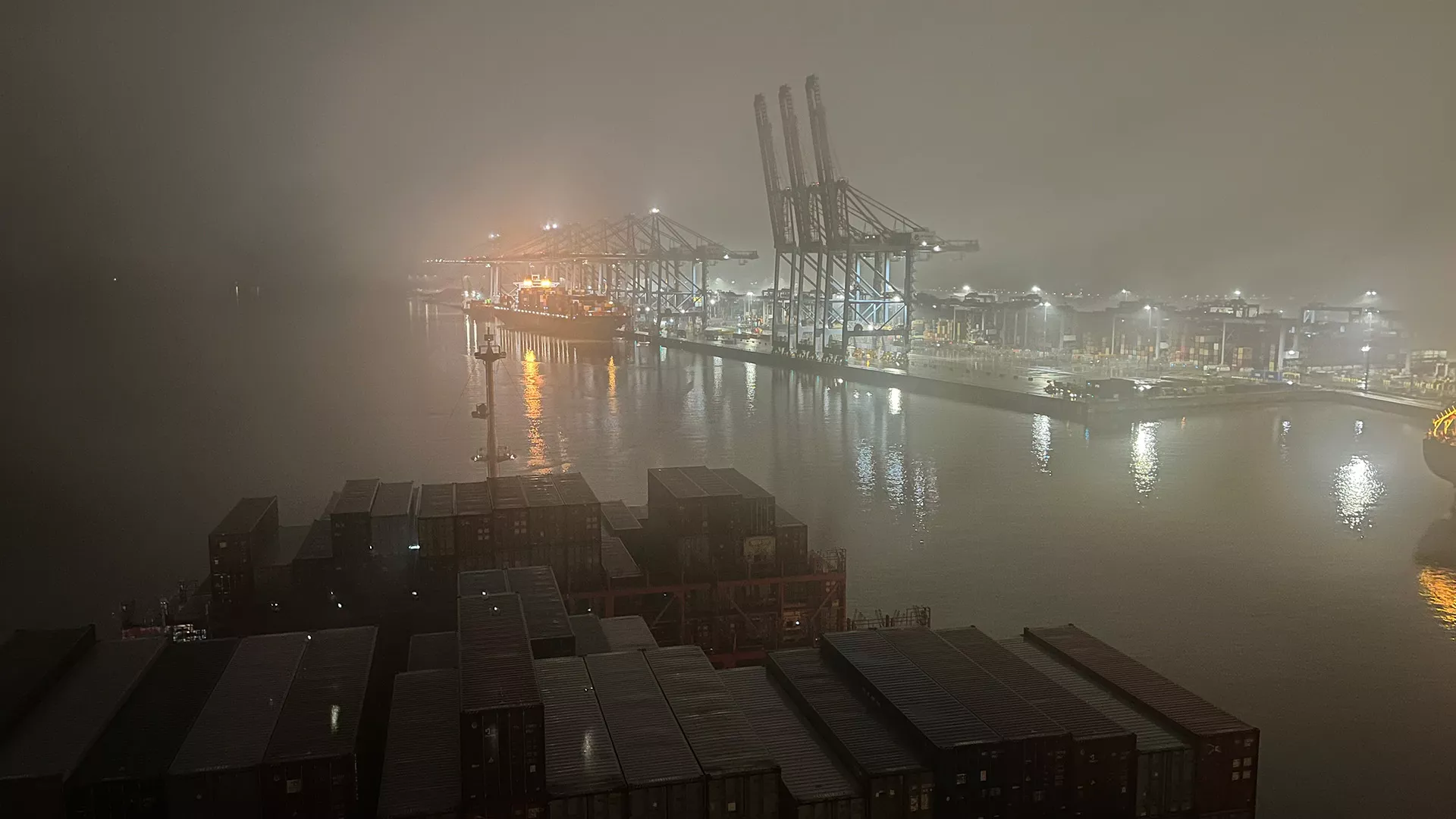
Final Consultation Statement C02-23
This consultation ran from 24/02/2023 to 05/04/2023. The below statement has been provided to summarise the Port of London Authority’s final response.
Response to feedback directly relating to the GD wording
• Clarity required on the definition of an intra-port vessel
An intra-port vessel is defined as one which normally operates wholly on the Thames (or Thames and Medway). Therefore, if a vessel’s usual area of operation is between the Thames and another area/port (other than the Medway), it would not be considered to be an intra-port vessel. If a vessel operated wholly on the Thames for only a small proportion of its overall operation, it would also not be considered to be an intra-port vessel.
• Clarity on where the GD will apply and consideration for excluding the estuary:
In response to the consultation feedback and following further consideration, the outer limit to which the GD applies has been revised to the Denton Limit, which is the outer limit of Category C waters. Therefore, the GD applies between Teddington and the Denton Limit.
Response to feedback not relating directly to the GD
This consultation was held on the forming of the General Direction relating to CPD, rather than on whether CPD should be introduced. However, many of the responses were in relation to the CPD programme itself and these points are addressed below:
• Concerns about the points system and the ability of some Masters to gain the required number of points within the given time:
The CPD Programme requires around 2 - 2.5 days of training per year to achieve 150 points over 5 years. There is a broad range of training activities available to choose between to provide flexibility and the list of CPD training activities continues to grow as more courses are submitted to the Governance Committee for approval.
The Company of Watermen & Lightermen is making provisions for self-employed Masters to access training via the Hall, either for free or subsidised. The Thames Skills Academy is also arranging free and subsidised training under the Thames CPD Programme, working closely with various partners.
Illustrative examples of how points can be achieved can be found on the CPD website.
• Not enough flexibility in the CPD courses offered for points
CPD participants are not required to undertake all the listed courses, rather they select those that are most appropriate. The Thames CPD Programme of training activities is not a fixed list: new training activities - training courses and skills and experience - can be submitted to the CPD Governance Committee, which is responsible for considering proposals for training activities to be included in the Programme.
It is for each company to decide which of the training activities listed in Thames CPD Programme their staff will undertake to reach their 150 points. If any company undertakes training that is not listed and contributes to safety, they can make the case for it to be included in the CPD Programme through the Governance Committee.
• Concern that the introduction of the programme will lead to Masters leaving the profession, resulting in shortages of personnel and loss of experience
There is a small risk of this but the CPD Programme also provides opportunities for Masters. For more established Masters, the CPD Programme recognises their experience and provides a reward for the mentoring they undertake. For the younger generation of Masters, the CPD Programme provides an opportunity to acquire skills and knowledge, which are valuable for career advancement. For anyone training to be a Master, the CPD Programme provides a structure to record their extra personal development and to prove to their employers that they are worth investing in. CPD will also help attract more people to the industry, showing a clear development pathway for their careers.
• Lack of consultation, particularly with smaller operators
There has been extensive consultation over a number of years with all operators, big and small, including through open letters, meetings, numerous workshops and a questionnaire, as well as more formal consultation on the PLA regulations.
• CPD programme should be restricted to the mandatory elements only
The CPD Programme has been developed to address safety concerns and the skills needed for the River to thrive into the future. The range of training activities and the mix of mandatory, accredited training and skills and experience categories gives flexibility to Masters and employers for relevant training required to enhance skills and improve safety. The Programme will evolve over time to ensure it continues to meet the needs of employers, employees, individuals and regulators as our industry changes.
• Request for the risk assessment to justify the need for CPD to be made public
PLA analysis of over 650 incidents involving BML holders over a five-year period (2013-2018) demonstrated that 31% were attributed to human error and a further 14% involved breaches of regulations. At this time, the Company of Watermen & Lightermen were in the early stages of developing a CPD scheme and a number of operators were expressing concerns about safety standards on the river. Through meetings and workshops with river operators, the PLA, TSA and Company of Watermen & Lightermen developed the CPD programme to address those concerns with the support of a range of Thames operators and in consultation with the wider river community.
Final statement in PDF
Initial Consultation Statement C02-23
This consultation ran from 24/02/2023 to 05/04/2023. The below statement has been provided to summarise the Port of London Authority’s initial response.
Some common themes were raised by respondents in their feedback to the consultation and these have been summarised below. This feedback is currently still under review by the PLA and on completion of the review a more detailed summary of feedback and responses will be published.
Response to feedback directly relating to the GD wording:
- Clarity required on the definition of an intra-port vessel:
The PLA is reviewing the definition of an intra-port vessel to give clarity on when a vessel meets the definition.
- Clarity on where the GD will apply and consideration for excluding the estuary:
The PLA is reviewing the lower limits of the area within which the GD will apply.
Response to feedback not directly related to the GD wording:
- Concerns about the points system and the ability of some masters to gain the required number of points within the given time
- Not enough flexibility in the courses offered for points (see note below)
- Concern that the introduction of the programme will lead to Masters leaving the profession, resulting in shortages of personnel and loss of experience
- Lack of consultation, particularly with smaller operators
- CPD programme should be restricted to the mandatory elements only
- Request for the risk assessment to justify the need for CPD to be made public
These points are being addressed by several means, including further meetings with operators and more detailed FAQs on the CPD website. The courses and allocated points are not a fixed list and participants are not required to undertake all the listed courses. Training courses, skills and experience can be submitted to the CPD Governance Committee, which is responsible for considering proposals to add training activities to the Programme, decide whether they fall into Mandatory, Accredited Training or Skills & Experience and the points to be allocated.
Cathryn Spain
Senior Harbour Master
General Directions for Navigation in the Port of London: Thames Continuing Professional Development (CPD)
Consultation C02-23
Introduction From 1st January 2024 the PLA is introducing a mandatory requirement for Masters of Intra-port, Commercial Vessels to participate in the Thames Continuing Professional Development (CPD) programme. This will be regulated by means of a new General Direction, which is proposed below.
Proposed new General Direction
From 1 January 2024, an Intra-port Vessel which is also a Commercial Vessel, must be under the command of a Master who:
(i) is currently enrolled on the Thames CPD programme;
(ii) has secured a minimum of 10 points on the Thames CPD programme in each oneyear period since their enrolment; and
(iii) has secured a minimum of 150 points on the Thames CPD programme in each fiveyear period since their enrolment.Note: The PLA will issue guidance on the Thames CPD programme and its CPD requirements
As defined within the General Directions:
Intra-port Vessel means a Vessel that normally navigates wholly within the Thames, including to and from the Medway Ports;
Master in relation to a Vessel, means any Person (except a Pilot) having or taking the command, charge or management of a Vessel, for the time being;
Commercial Vessel means any Vessel which is not a Pleasure Vessel;
and Pleasure Vessel has the same meaning as in the Merchant Shipping (Survey and Certification) Regulations 1995 and in addition, includes Vessels which are bareboat chartered.
Further information on the Thames CPD programme can be found here: https://thamescpd.co.uk/
Feedback
Any comments you may have in response to this consultation should be addressed in writing to the Marine Compliance Department at the address below, or by e-mail to: [email protected], to arrive by 5th April 2023.
Land & Water accommodates coaster vessels at Coldharbour Jetty
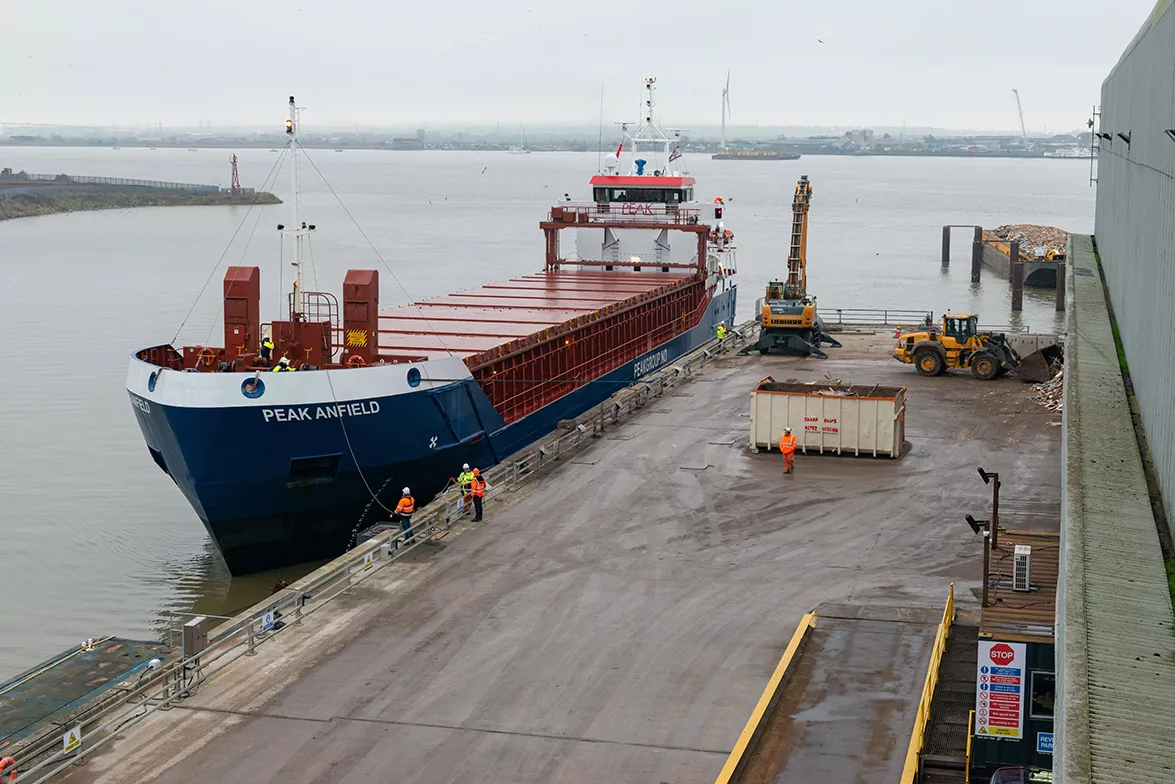
Leading wet civil and environmental engineering firm, Land & Water Group, has upgraded Berth 3 at Coldharbour Jetty, on the River Thames, to accommodate coaster vessels, used for short sea shipping, as part of a landmark development for the company.
It is the first time in the jetty’s history that this type of vessel has been berthed and loaded as part of an ongoing commitment towards supporting cargo deliveries in and out of London. The modifications to the berth were designed by Hewson Consulting and works were undertaken by Land & Water Services. The jetty will be operated by Land & Water Remediation, the environmental services division of Land & Water Group.
Tom Melhuish, Director of Land & Water Remediation, comments, “This is an incredible achievement and one that we are immensely proud of here at Land & Water. The berth upgrade will unlock future supply chains into London whilst harnessing the River Thames as a sustainable transport system.
“Land & Water is passionate about delivering innovative and sustainable logistical solutions that benefit the environment as well as the UK’s infrastructure. I want to thank the Port of London Authority, Hewson Consulting Engineers and M4S Maritime for helping to bring the berth into operation.”
David Allsop, Deputy Harbour Master at the Port of London Authority, said: “It’s exciting to see the Thames’ potential being utilised to introduce a new export service. This project is another boost for the Thames Vision 2050, which we launched last year, with the aim of maximising the long-term economic, environmental and social potential of the river from Teddington in south west London to the North Sea.”
Coldharbour Jetty is a marine logistics centre for shipping and barging operations, acting as an intermodal transport hub for materials and cargoes to be imported and exported. It also handles waste spoils from construction works in central London destined for reuse at Land & Water’s Habitat Creation Scheme at Rainham Marshes. The scheme, which Land & Water will be operating until 2040, will see up to eight million tonnes of wet and dry spoil material being used to create an oasis for birds and wildlife whilst encouraging greater areas of greenery along the Thames corridor.
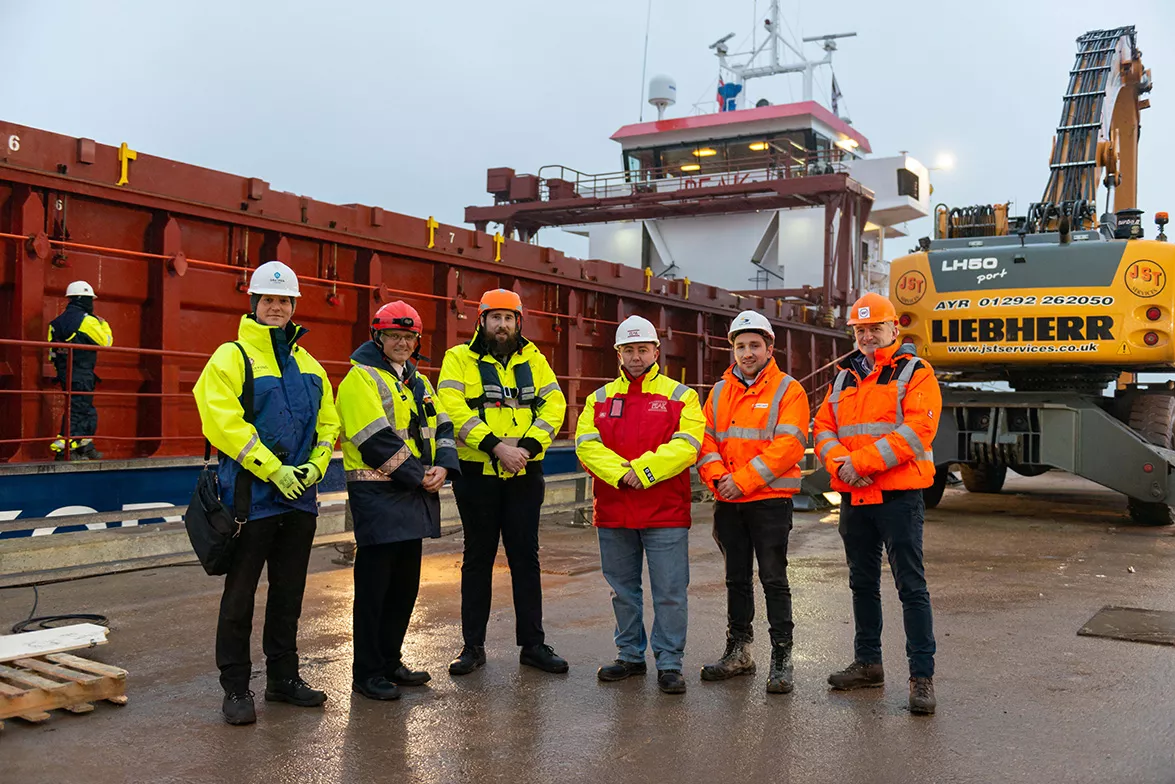
Related content


Location: London/Gravesend Remuneration: £28,971 per annum for a commitment of up to 24 days per...

New home for Kent anchor retrieved from Thames by Port of London
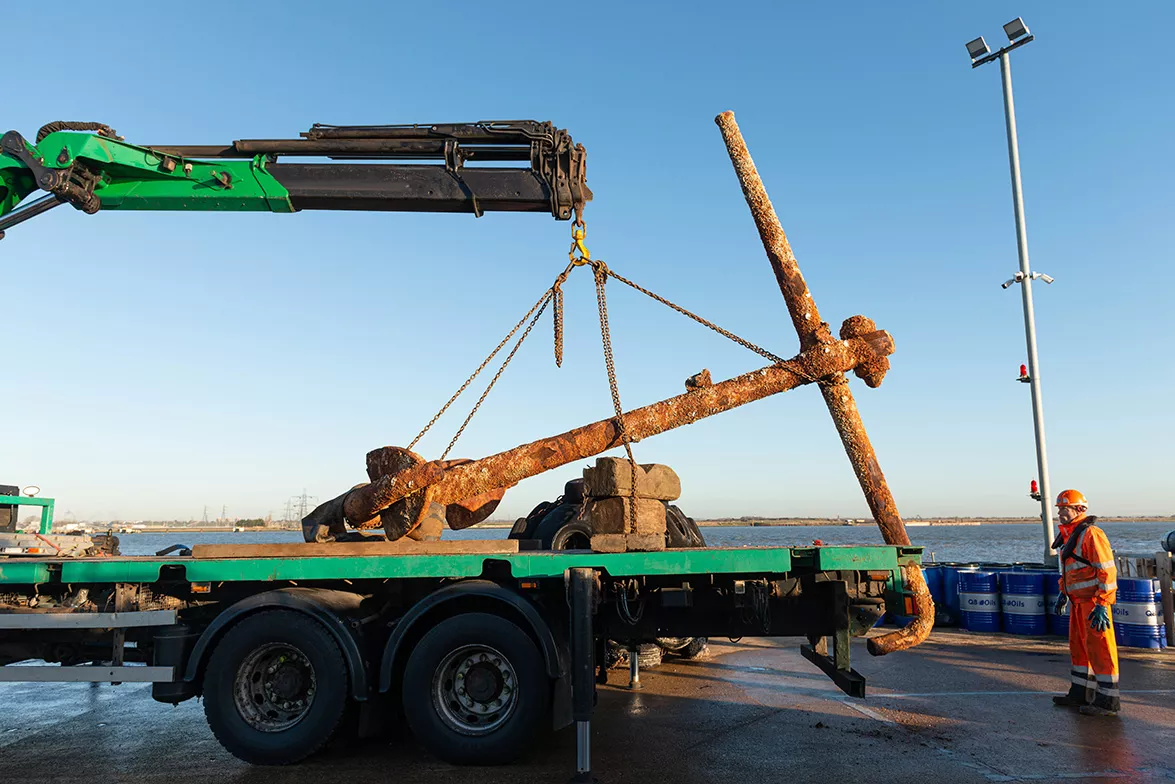
An anchor, believed to date back to the late 1800s, recovered from the Thames riverbed near Gravesend by the Port of London Authority (PLA) is being renovated at Chatham Historic Dockyard, ahead of going on public display.
In February 2022, PLA divers hauled the anchor from the river at Northfleet after a hydrographic survey identified it as a risk to navigation.
The PLA’s head of marine services, Jim Denby said: “We were surprised by the size of the anchor and the fact that it was still in one piece, completely intact and in good condition.
“There is no record of how this could have come to be in the riverbed and no report of any vessels losing it.
“We look forward to seeing how the conservators at Chatham Historic Dockyard can restore it.”
The anchor is currently residing in a treatment bath, awaiting further conservation to avoid drying out and subsequently surface cracking.
Karoline Sofie Hennum, conservator for Chatham Historic Dockyard trust, explains: “As the anchor has been resting on the seabed for quite some time, it has started rusting. We estimate the conservation process could take up to two years to complete due to the anchor’s size. When this has been completed, I will treat the surface with a wax/coating to protect it from external deterioration sources. I am really looking forward to collaborating with our Heritage Engineering and Historic Ships Manager, James Morgan, to ensure the anchor survives for many more years to come.”
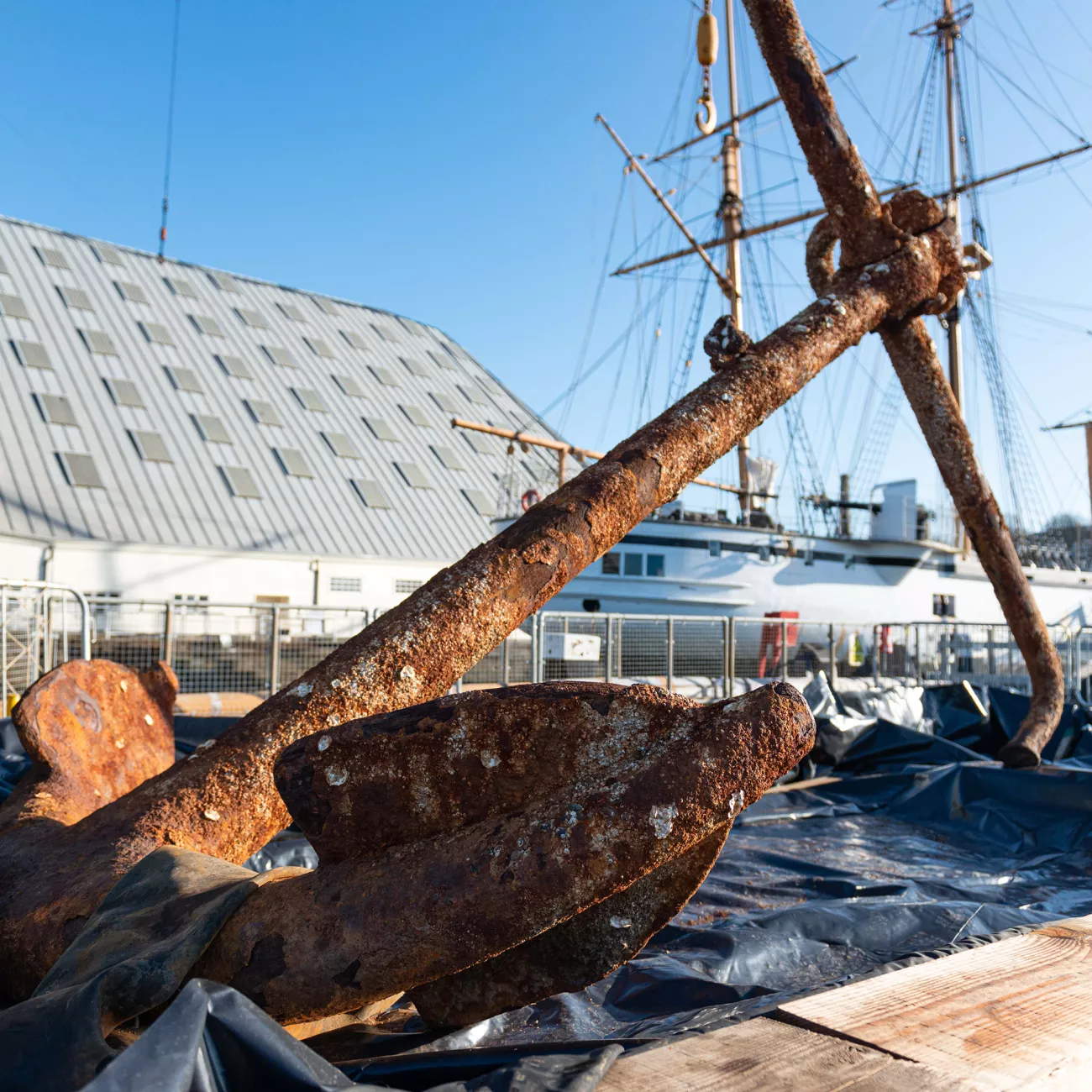
Related content


Location: London/Gravesend Remuneration: £28,971 per annum for a commitment of up to 24 days per...

Svitzer gains gold in PLA’s Thames Green Scheme
Global towage operator, Svitzer, has achieved gold status in the Port of London Authority (PLA)’s Thames Green Scheme, in recognition of its environmental commitments and decarbonisation strategy
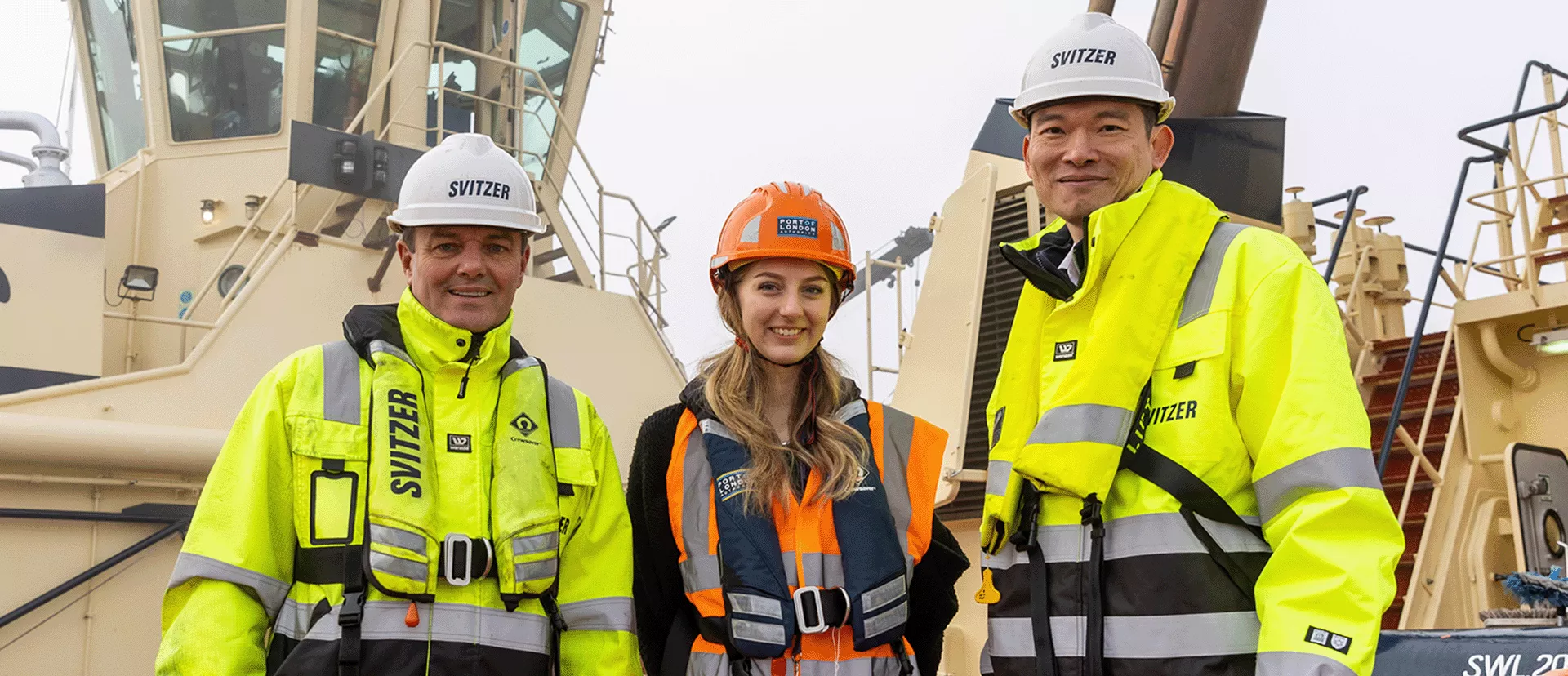
Svitzer introduced carbon neutral biofuel across its Thames-based fleet in 2022, offering customers a new, cleaner towage service called Ecotow. The Ecotow product exclusively uses sustainable second-generation biofuels, produced using waste material such as used cooking oil as feedstocks and are certified by ISSC or RSB. Relative to marine diesel, these biofuels reduce carbon emissions by 100% on a tank-to-wake basis and about 90% on a well-to-wake basis. Use of the fuel was successfully trialled on the Thames, home to the UK’s largest port, in 2021.
Thames Green Scheme, launched in 2020, recognises early adopters of new technologies and fuels to create a cleaner and healthier environment for people and wildlife. Svitzer progressed from silver status in the scheme to gold, following the adoption of marine biofuel and use of shore power for six vessels based at the PLA’s operations site Denton in Gravesend.
Alistair Gale, PLA’s director of corporate affairs and strategy, said: “It is great to see a global organisation like Svitzer leading the way in adopting new technologies, improving air quality and reducing carbon emissions. This is good news for the tidal Thames, home to the UK’s leading port, where we are driving together towards a Net Zero future.”
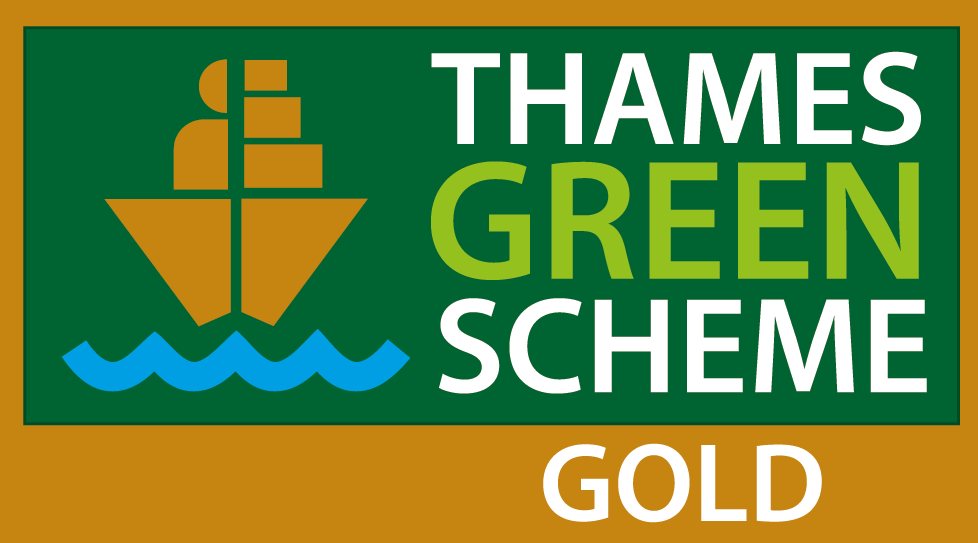 Thames Vision 2050, launched last September, sets out the goal for the Port of London to remain the UK’s leading port, central to the nation’s economy, with Net Zero emissions. The PLA is targeting Net Zero in its own operations by 2040, or earlier.
Thames Vision 2050, launched last September, sets out the goal for the Port of London to remain the UK’s leading port, central to the nation’s economy, with Net Zero emissions. The PLA is targeting Net Zero in its own operations by 2040, or earlier.
Also committed to becoming fully carbon neutral by 2040, Svitzer has been making impressive progress in the last two years, announcing the design of the world’s first fuel cell tug for harbour operations, running on green methanol, in cooperation with Maersk, and the build of the next generation multipurpose tug, TRAnsverse Tug, which will be lighter in design, consume less fuel and be ground-breaking in its use of future carbon neutral fuels.
Cliff Chow, port manager for Svitzer in London, said: “It is a great honour for Svitzer to be awarded the Thames Green Scheme Gold accreditation. Environmental responsibility is deeply integrated in our strategy, and we invest significantly in finding the right paths to meeting our ambitious decarbonisation targets. This gold status is a nice testament to the strides we are making.”
The PLA’s Thames Green Scheme is a voluntary, free-of-charge scheme for all inland commercial and services vessel operators to join and demonstrate their environmental performance.
Related content


Location: London/Gravesend Remuneration: £28,971 per annum for a commitment of up to 24 days per...

Careering ahead
Keon St Croix
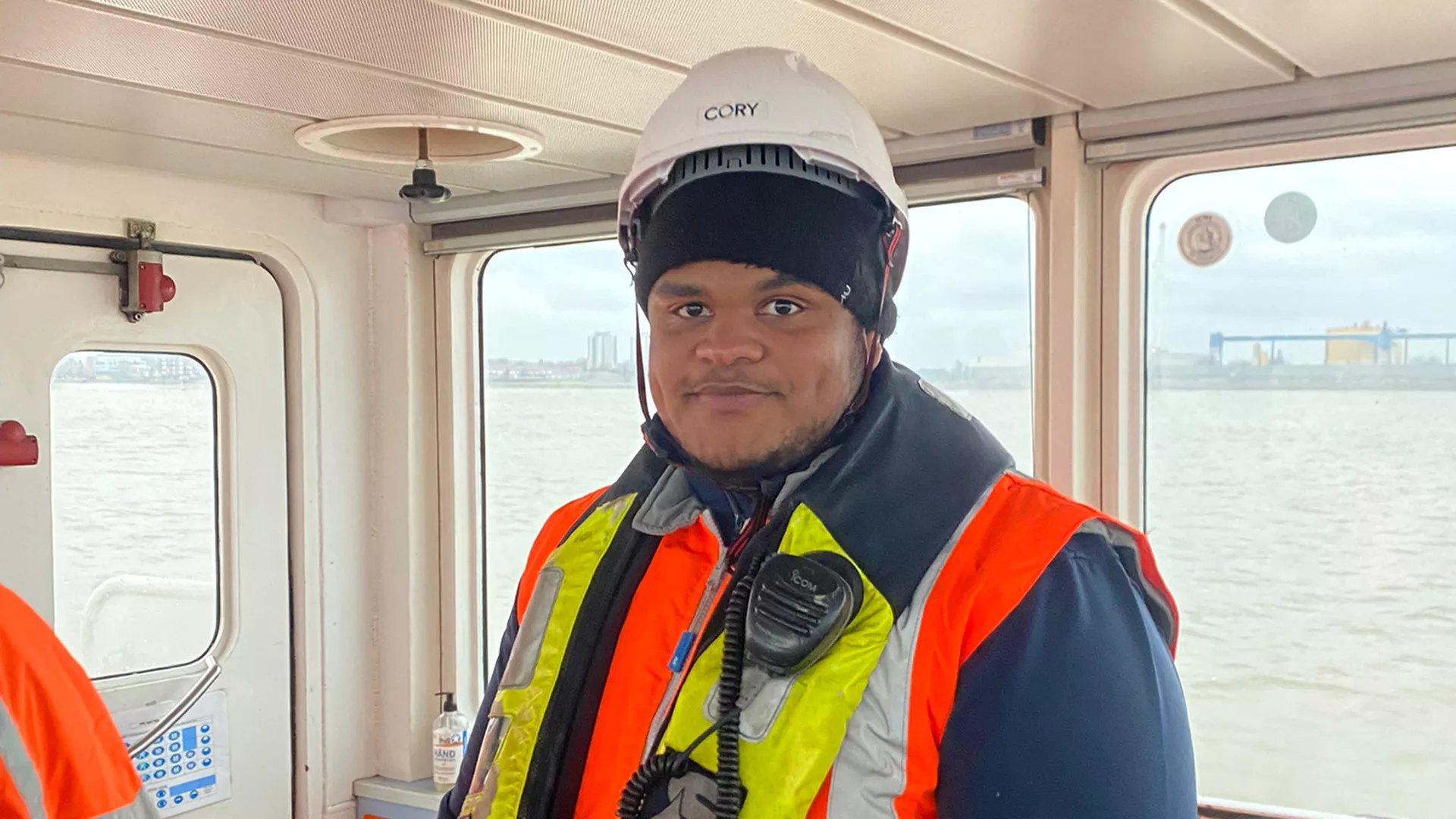
Marking National Apprenticeship Week (6-13 February 2023), life-long Londoner, Keon St Croix, a trainee lighterman with Cory, explains what set him on the path to a career on the river.
Apprenticeship advice
“My advice to anyone considering a maritime apprenticeship is go for it! You won’t be disappointed.
“As long as you are hardworking and have a passion for it, you will always have someone willing to teach you.
“It can be intimidating, at first especially, as there is a lot to learn.
“But it would be a mistake not to grab the opportunity if it comes along.
“The Thames is the best work environment in my opinion, all year round.
“It can get a bit chilly in the winter – you need to a lot of layers to keep warm - but it’s worth it.”
Learning regime
“Apprenticeships are a great option for people setting out in life.
“Everyone learns at different speeds, and we all have different abilities.
“Some people don’t do well in a classroom environment.
“Apprenticeships provide a way for you to learn practically, whilst also getting first-hand experience in your chosen trade.
“I think that by the end of it you have learned more than sitting in a classroom.”
New horizon
“Even though I have lived close to it all my life, at school I never considered working on the river.
“I just didn’t know it was an option.
“My educational background was a BTEC in business at Christ the King Aquinas college in Brockley.”
River revelation
“My introduction to the maritime industry came via the AHOY Centre in Deptford, where I completed an apprenticeship.
“My time there opened my eyes to working on the river.
“It involved working with local children to introduce them to river-based activities, such as sailing, rowing and power boating.
“I also got my power boat level 2 and sailing level 2 whilst I was there.
“It gave me a passion for the river which I don’t think will ever leave me now.
“I still keep my hand in rowing – for example as part of the Watermen’s Hall crew in Thames Traditional Rowing Association events on the river.”
Working week
“Typically, I work for 12 hours a day, three days a week.
“The start of the each working day depends on my order time. It can range from 6am to 9am.
“The starting point for our journeys is usually the Cory depot at Charlton, not far from the Thames Barrier.
“When we get underway, we pick up barges and transport them to different wharfs sometimes upriver through London, all the way to Wandsworth, or we may head down river to Tilbury Dock.
“My role as an apprentice lighterman is to attach the barges to the tug, throw ropes and ‘get turns’ – that means tying up boats together.
“I also get time on the wheel as we’re going up and down river.”
Cory story
“It’s exciting working at Cory.
“We use river-based infrastructure to help London to manage its recyclable and non-recyclable waste.
“Work to de-carbonize our operations will also be helping the river achieve Net Zero targets.
“The company is developing a second energy-from-waste facility in Bexley.
“The current site generates enough electricity to power around 160,000 homes.
“The ash from the incineration process also gets recycled for building material, which means nothing goes to waste.
“That’s good news for the environment.”
Future goals
“Hopefully, my apprenticeship can get me a full-time job in the maritime sector.
“The more I have worked on the river, the more I have enjoyed it
“I want to continue learning and progress further.
"I’d like to work my way up to become a captain one day.”
Quick fire
- Best view of the river? You can't beat a good sunrise! Watching the sky and water turn red on the barges is so beautiful and peaceful. A close second is going through London at night-time.
- Hobbies? At the moment my main hobby is probably playing pool with my friends. I also enjoy going to the gym, setting goals and attaining them.
- Role model: My Mum, who installed me with a hard-work ethic and always taught me to be kind to others.
Related content


Location: London/Gravesend Remuneration: £28,971 per annum for a commitment of up to 24 days per...

UK’s largest port will launch ‘Safe Boarding Week’, a European first
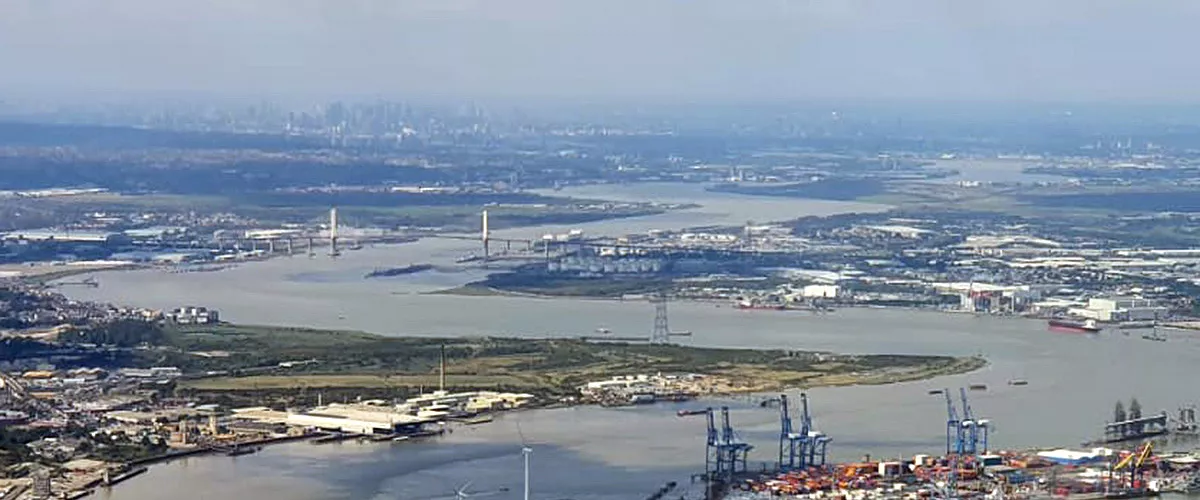
The Port of London Authority (PLA), which oversees operations in the UK’s largest port, will launch ‘Safe Boarding Week’ this month, the first of its kind in Europe.
The week-long safety initiative, from Monday 27 February to Sunday 5 March 2023, aims to increase awareness of safe access to and from vessels, and highlight the importance the PLA places on safety on the 95 miles of the tidal Thames that it manages.
Safe access to and from the varied range of vessels on the Thames, including pilot ladders onto ships, as well as ship to shore access at berths, terminals, jetties, and piers, is a key concern for the PLA. Inspired by Panama Canal Authority (ACP)’s Safe Boarding Week, an annual event since the late ‘80s, the PLA decided to initiate its own safety event, which aligns with its proactive approach to safety and safe boarding
PLA’s chief harbour master Bob Baker said:
“We continue to engage with berths and terminals where difficulties in providing gangway access are known to exist, and deficient boarding arrangements are frequently reported. Safety is at the heart of the what the PLA does every day; ‘Safe Boarding Week’ aims to increase awareness of the PLA’s commitment to safe vessel access on the River Thames.”
During the seven days of Safe Boarding Week, the PLA aims to inspect the boarding facilities of 200 cargo and passenger vessels, as well as terminal operators, jetties, and piers. The results of these comprehensive assessments will enable the PLA to influence further improvements to safe boarding on the River Thames.
The responsibility for safe access on and off the vessels on the tidal Thames is shared between the master of the ship/vessel, in respect to Safe Access regulations, and the jetty or terminal operators, many of whom elect to abide to the Port Marine Safety Code.
Related content


Location: London/Gravesend Remuneration: £28,971 per annum for a commitment of up to 24 days per...

Discover
